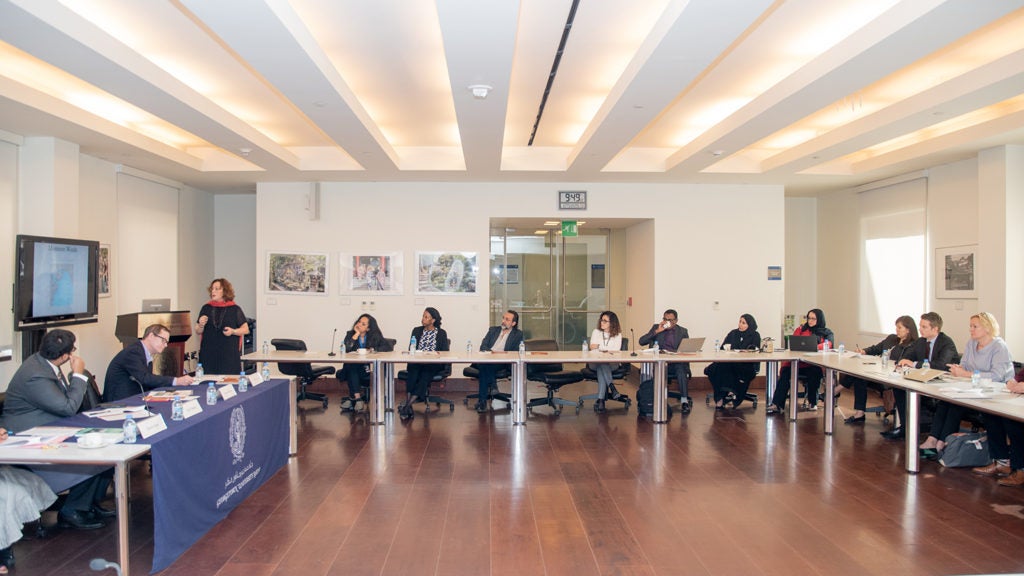Georgetown’s Indian Ocean World Conference Remaps a Dynamic Region

Georgetown University in Qatar (GU-Q) recently hosted a public conference titled Towards a Re-mapping of Diasporic Circularities in the Indian Ocean World, which featured a multidisciplinary panel of local and international scholars seeking to explore and redefine the diverse cultural, economic, and historical ties between the Gulf region, Southeast Asia, and Africa.
In his opening remarks, GU-Q Dean Ahmad Dallal noted the significance of the research, saying: “This year’s symposium is being held at a time when regional geopolitical disruptions and competitions remind us of the necessity to deepen our understanding of the region’s peoples, cultures, and movements, and social, political and economic exchanges, and how these changed over time.”
Through case studies from Qatar, Goa, Zanzibar, and Madagascar, among others, the presenters explored the issues of, oil, wages, Islamic revivalism networks in the Malay-Indonesian world, and the role of Comorian sheikhs as community builders.
Relying on historical records, maps, photographs, and other documentation, the scholars showed how mobility and race, slavery, interracial unions and colonial ethics, and turn-of-the-century maritime military history, connected the empires and histories of different communities and countries in complex ways that told unique stories across the Indian Ocean Rim.
GU-Q Assistant Professor of Government and event coordinator Uday Chandra, said: “In comparison to other regions of the globe, the Indian Ocean world has been relatively neglected by researchers and scholars. That is why we have made this region a focus of research at GU-Q through the creation of a working group, academic partnerships in Education City and globally, and through our annual symposium. ”
Scholars from GU-Q and Qatar University took part in the symposium, as well as experts from the U.S., Portugal, Italy, India, South Africa, and The Netherlands. Institutions represented included Johns Hopkins University, Ohio State University, University-Institute of Lisbon, Leiden University, the Catholic University of the Sacred Heart, Ashoka University, and the University of Witwatersrand.
“By approaching the study of the Indian Ocean World through different lenses – literature, history, anthropology, and architecture – we are challenging misrepresentation of this region as historically isolated, or underdeveloped, and support the creation of an alternative history that shows vibrant cultural change and exchange,” explained Professor of Anthropology Rogaia Abusharaf, a founding member of the working group and event organizer. “We also continue to encourage our colleagues and students in all fields to connect their academic focus to the study of this region,” she added.
Inspired by this ongoing project, symposium presenter and Associate Professor of English at Georgetown’s Washington, D.C. campus, Cóilín Parsons, will soon be offering a literature of the Indian Ocean course.
This is the sixth faculty conference organized by the Indian Ocean working group, which was created by GU-Q faculty Rogaia Abusharaf, Phoebe Musandu and Amira Sonbol along with Northwestern University in Qatar’s Sandra Richards, and includes participation from Qatar University, the Doha Institute for Graduate Studies, Al Jazeera Center for Studies, and other international members.